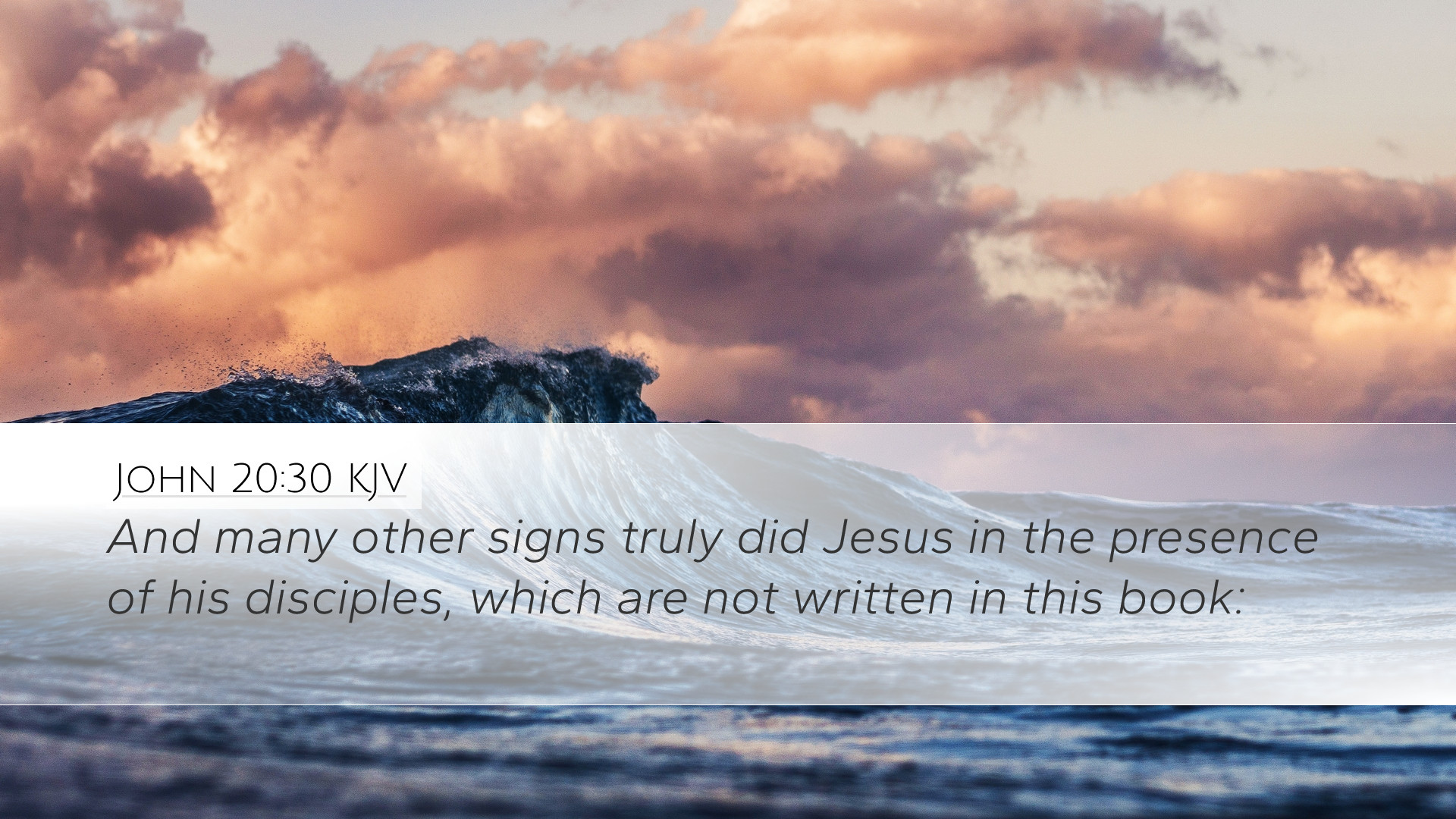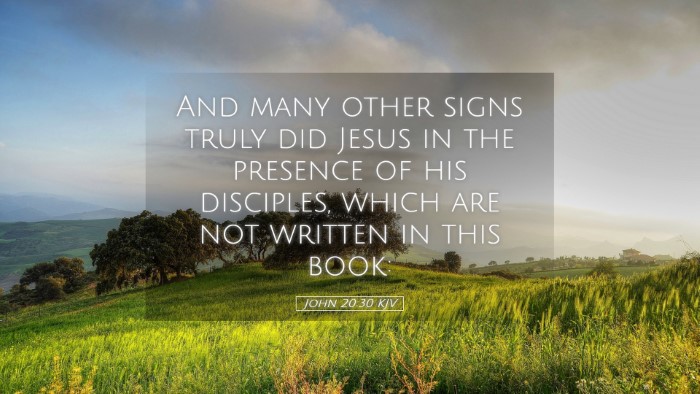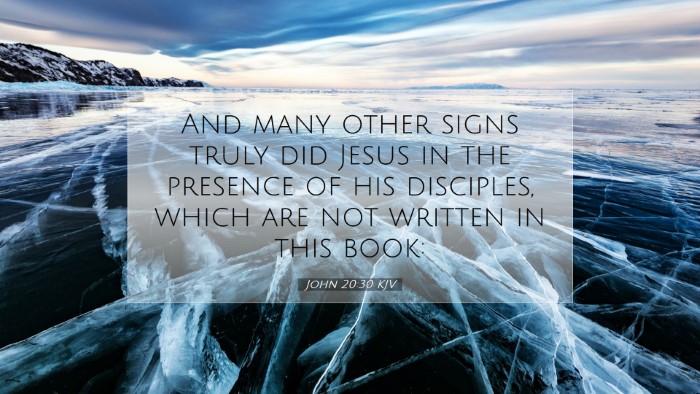Commentary on John 20:30
John 20:30 states: "And truly Jesus did many other signs in the presence of his disciples, which are not written in this book."
This verse serves as a concluding remark in the Gospel of John, prompting readers to reflect on the significance of the signs and miracles performed by Jesus. It highlights the purpose of John's Gospel and the selective nature of its content.
Purpose of John's Gospel
The purpose of the Gospel according to John is multifaceted. The verse emphasizes that the author had a deliberate intention in selecting the miracles and signs to convey the divinity of Jesus Christ.
-
Testimony of the Disciples: The phrase "in the presence of his disciples" is significant as it indicates that these miracles were witnessed by those who would become the founding members of the early Church. Their firsthand experience would serve as a cornerstone for early Christian testimony.
-
Evidence of Christ's Ministry: The mention of “many other signs” suggests that the signs recorded are merely a sample of Jesus' total works. This reinforces the idea that the life and ministry of Christ were filled with divine interventions and teachings that sought to reveal his identity as the Messiah.
Insights from Public Domain Commentaries
Matthew Henry's Commentary
Matthew Henry reflects on the abundance of Jesus’ miracles and states that John’s Gospel does not attempt to catalog every sign, but rather to focus on those that demonstrate Jesus’ divine nature. He explains that the purpose of the signs is to lead readers to faith in Christ, emphasizing that these miracles are meant to inspire belief and understanding about who Jesus is.
Albert Barnes' Notes on the Bible
Albert Barnes elaborates on the verse by noting that the recorded miracles were selected to instruct and convert. Barnes believes the signs serve as evidence of Christ’s claims and underline the necessity for faith. He also suggests that the Gospel writer’s intent was not merely to provide historical accounts but to encourage faith through the revelation of Christ’s character.
Adam Clarke's Commentary
Adam Clarke emphasizes the specificity of the miracles noted in John's Gospel. He postulates that John's selection was inspired by the Holy Spirit to provide compelling and necessary proof of Jesus' divine mission. Clarke points out that although many signs were performed, John highlights those that are most relevant for the faith journey, asserting that they serve to establish Jesus as the focal point of salvation.
Theological Implications
The theological implications of this verse are profound. The acknowledgment that not all signs are recorded indicates the richness and breadth of Jesus' ministry. This has a twofold significance:
-
Encouragement for Evangelism: The fact that Jesus performed many signs gives a narrative depth that encourages believers to share their testimonies. It reflects the idea that the works of Christ continue in the lives of believers through the Holy Spirit.
-
Invitation to Personal Discovery: Readers of John's Gospel are invited into a journey of faith. The signs serve as a call to discover the unrecorded works of Jesus in their own lives, urging a deeper relationship and belief in his present power and influence.
Conclusion
John 20:30 is an invitation for deeper reflection and faith. As John closes his Gospel, he emphasizes the significance of the signs that point to Jesus as the Son of God. For pastors, theologians, and students, this verse serves as a vital reminder of the purpose of the Gospel—both to affirm faith and to inspire continued exploration of Jesus' life and works. The testimony of the apostles and the paucity of recorded miracles engenders a hunger for understanding the fullness of Christ’s ministry.


